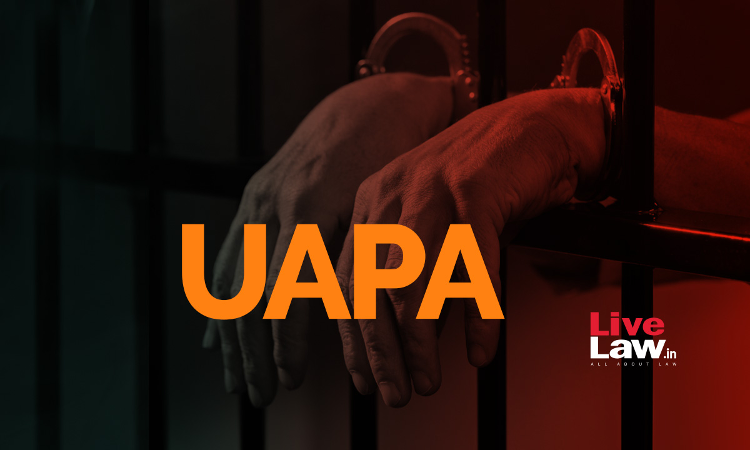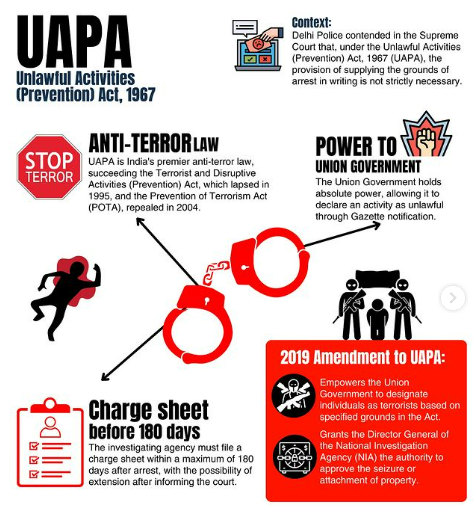Free Courses Sale ends Soon, Get It Now


Free Courses Sale ends Soon, Get It Now



Copyright infringement not intended
Picture Courtesy: https://www.livelaw.in/know-the-law/uapa-sanction-process-and-interpretations-explained-211785
Context: The Supreme Court declared the arrest and remand of NewsClick founder Prabir Purkayastha under the Unlawful Activities Prevention Act (UAPA) by the Delhi Police as "invalid in the eyes of law", requiring his release from custody.
Details

Unlawful Activities (Prevention) Act (UAPA)
Key Provisions
Criticism and Controversies
Legal Challenges and Judicial Pronouncements
Way Forward
Conclusion
Must Read Articles:
Unlawful Activities (Prevention) Act (UAPA) 1967
Source:
|
PRACTICE QUESTION Q. Evaluate the effectiveness of the Unlawful Activities (Prevention) Act (UAPA) in curbing terrorism and unlawful activities, considering the criticism that it has been used to suppress dissent and target marginalised communities and human rights activists. How can the Act be reformed to ensure it is not misused while still serving its intended purpose? |
© 2024 iasgyan. All right reserved